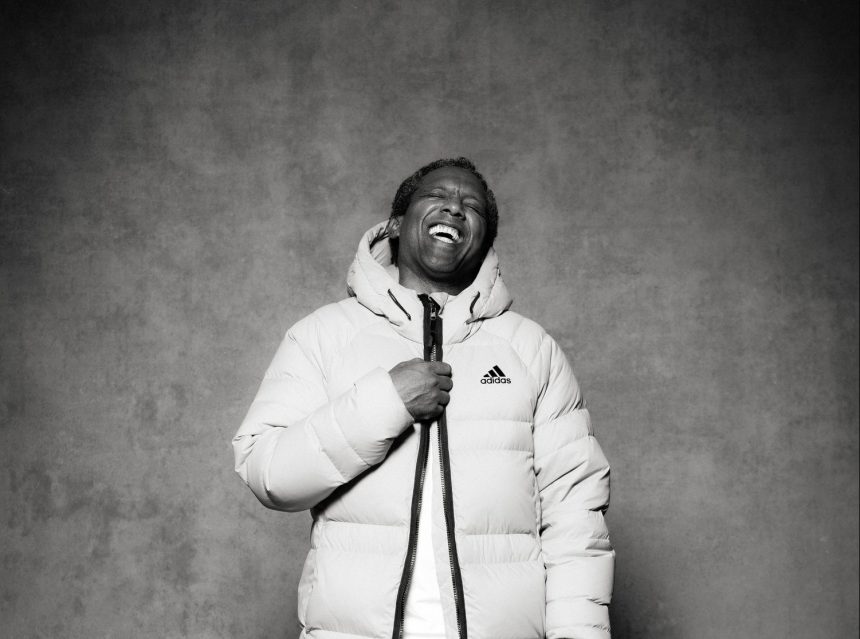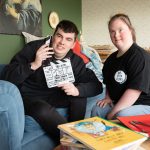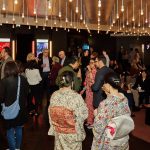‘How do you wake up and shine?’
‘I keep it simple,’ said light
‘One day at a time’
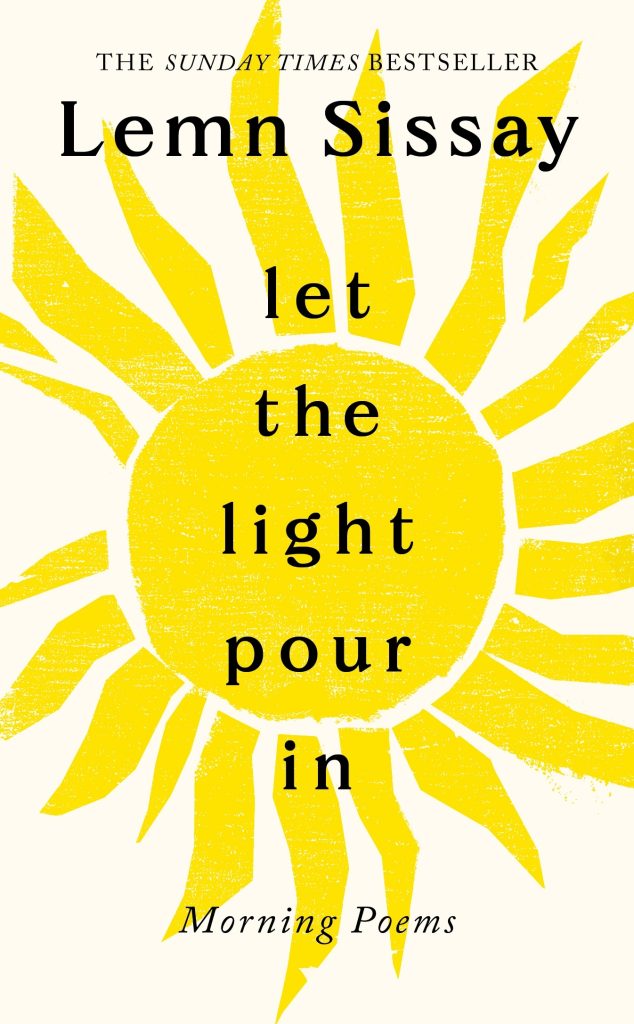

We’re very exited about you coming to Sydney. You’ve worked in Australia before- any special memories?
I made a BBC radio documentary years ago called Songlines of Steel. I followed the route of the Ghan train up to Uluru. It was an incredible journey. I spent a great week in Adelaide back in 2011 at the University of South Australia, and had a lot of events and talks, and a one-man show that was recorded by ABC. One of my highlights is an interview I did with Richard Fidler at the Byron Writers Festival, again for the ABC- it was so cool! It’s really one of my favourite interviews ever, that and when I was on Dessert Island Discs in the U.K. I’m going to be catching up with Richard again when I’m in Sydney so that will be special.
So this will be your first time in Sydney?
Yes, I haven’t performed in Sydney before. Lots of writers I know in England have been in Sydney Writers Festival and have told me how great it is, so I’ve always wanted to get there myself. I always feel when I get on a plane that something really magical has happened, because I would never have thought that writing would put me on a plane, to another country, to another people.
The journey here often takes on it’s own significance.
I guess when you’re an island sealed in by water, everybody’s a visitor. Everybody is landing and alighting and taking off. You’ll often hear people talk about the journey to get to Australia, but they’re reflecting what Australians have to do to go anywhere else in the world. You don’t hear Australians in England saying, ‘Oh my God, the journey here was so hard!’ They just get on with it. It’s funny.
What impression has Australia made on you over all these years that you’ve been coming here? Do you love it?
Yes, I do! It’s a fascinating place. It’s very transparent. You can see its history clearly, its growth, its developments. Whereas somewhere like England tries to hide half of its history. I like complex communities, which is most communities, let’s be honest, but I like that. To see the dark and the light. The accepted and the unaccepted parts of society. It’s fascinating for a writer. I love to hear and feel what the various communities of countries other than my own are saying- to shut up and listen to them. You have such a rich tradition of literature in Australia, and I don’t know whether it’s because of the Celtic, the Irish blood. I’ve even got a poster to prove it here right behind me on my wall from the Canadian Olympiad! It was years ago and I was performing alongside the Australian hip- hop artist Morganics in Vancouver.

Is there a piece of Australian art you’re particularly fond of?
The Australian writer Peter Goldsworthy wrote a short story called The Kiss, which is brilliant and about two boys. Then it was made into a short film by Ashlee Page also called The Kiss, but this time it was about two girls. It’s absolutely beautiful. They jump into this isolated firewater tank, and it’s intimate, and innocent. The water evaporates and they can’t reach the the ladder. It’s such a genius thing and beautifully shot. It won a lot of awards, and I’ve always wanted them to to put it online so that it can be seen.
Your work is widely celebrated and honoured, especially in the UK, where you’ve really shone a light on the inadequacies of the care system, and you’ve personally brought about change. What role does the writer have in society, do you think?
Writers can promote ideas and I think ideas are the most explosive and dynamic expressions of people. Actually, of humanity, of humans. Ideas can change the world. That’s writer’s currency. I’m not saying that I’m changing anybody. I’m just saying it’s a good thing. It is a good thing to stimulate and to introduce ideas through writing that people may not have thought about. We need readers, we’re no better than the reader. You have to be inspired if you’re going to inspire. It’s a two- way journey.
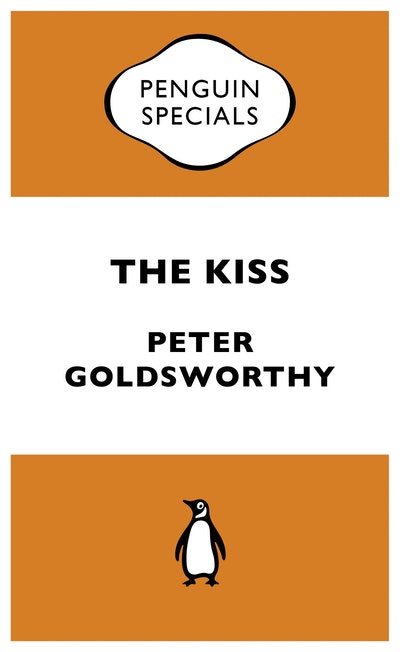
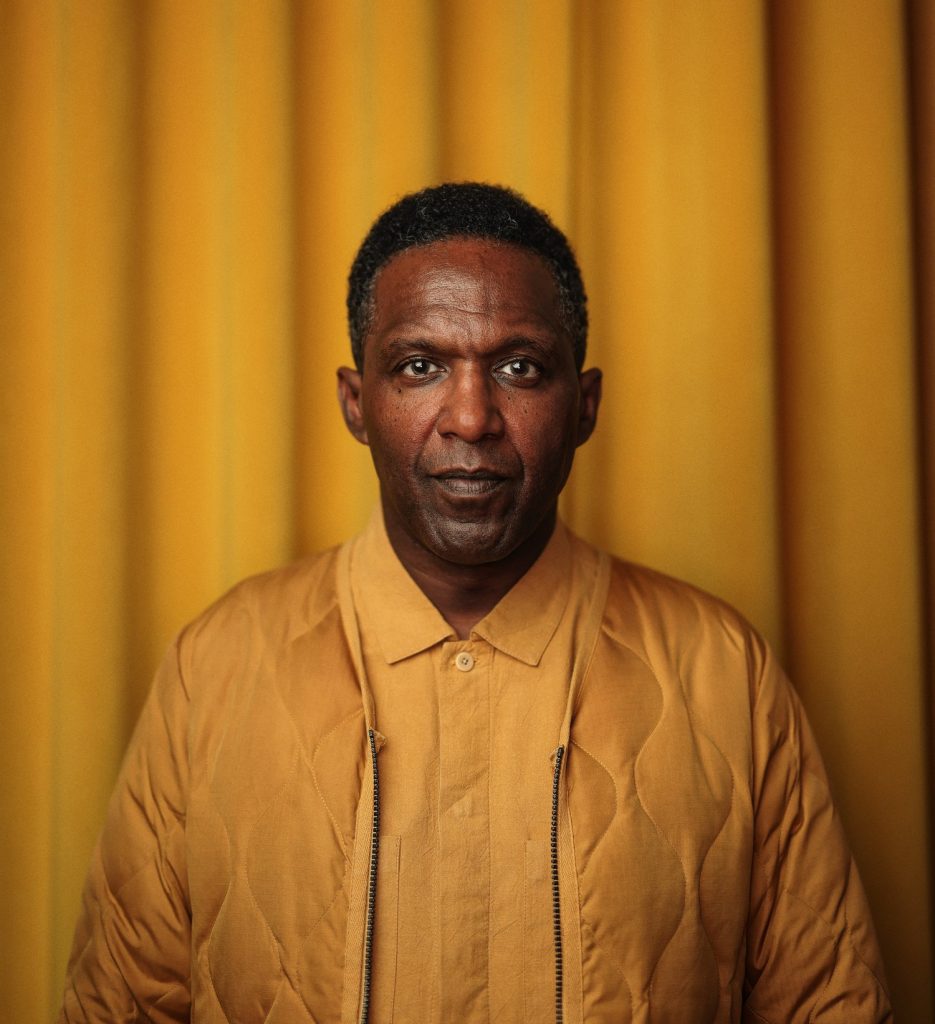
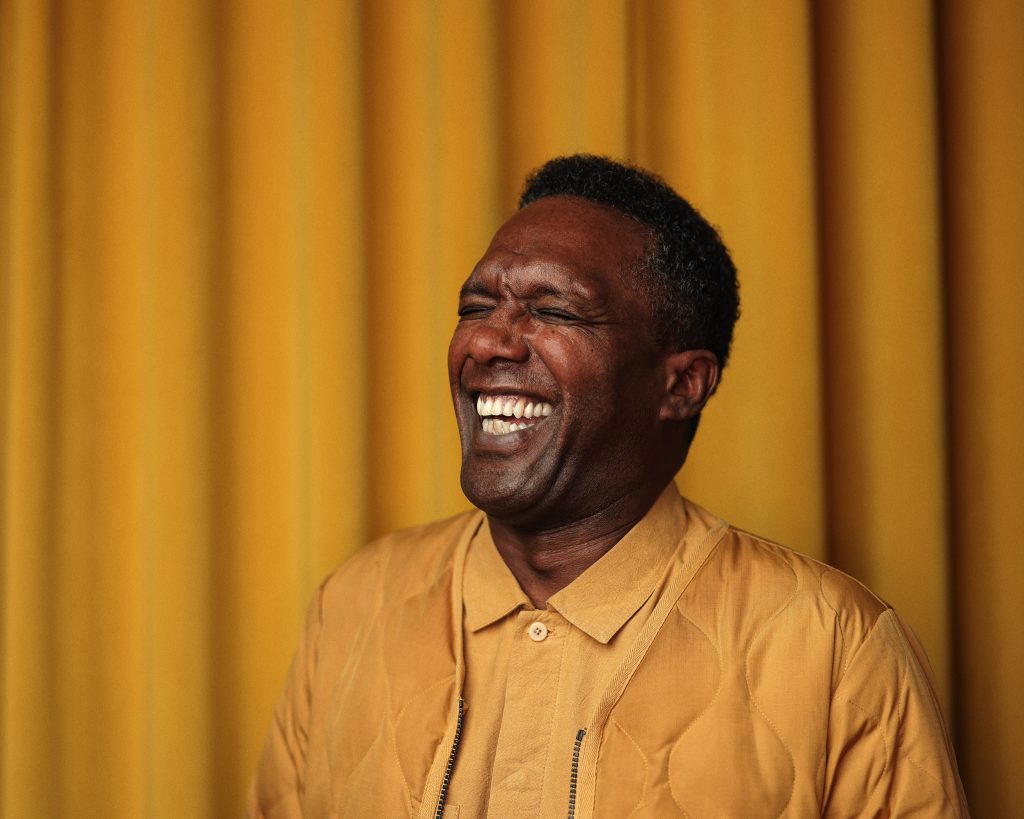
Let the Light Pour In is your latest book and a collection of poems that you wrote every morning and published online for years. Were they a way of recording your own life?
I keep a blog, well, I used to keep a blog. I kept it for 13 years and I did it so that I can hold onto things, in lieu of memory. If you entrust your memories to institutions, they might delete it. They’ll forget something, wipe the pictures, delete the story.
I think of poetry and of Let The Light Pour In as being emotional witness statements. You have no record of your emotional state at any time other than in your memory. And it goes. It’s not easy to know how you were feeling, in the way you can know where you were, or what you were doing. Whatever position you find yourself in, you will have a different reason for wanting to make an emotional witness statement. So, for example, if I’m trying to prove that somebody’s been really bad to me at work, I will write the event that happened’, and write what I feel at the time. Otherwise I would forget.
But you have to have a reason to want to make an emotional witness statement, and I think that is possibly the real driving force behind all poetry.
So what do you feel now when you look at the collection in Let the Light Pour In?
All poetry is a witness statement. All of it. Whether it’s an emotional one or not. I think that Let The Light Pour In was a way for me to be able to get in touch with what mattered at the beginning of every day. I think really I also just wanted to be a better writer, because internally, I’m not sure I am.
The evidence would suggest you’re a pretty good writer!
Yes, well, the evidence to you may suggest otherwise. But for me, in my head, I’m pretty crap, and I need to do things to try and prove to myself that I’m not crap. I can’t achieve that, so in the end I have to do it every day. Otherwise, I would just write one thing and then never write again. But it is the knowledge that I’m not that good that makes me want to constantly try and be better. I am not kidding.
Has this book of poems alleviated any of those feelings for you?
Absolutely not! I’m my own critic and I go by my own standards, and that’s what I have to deal with. I’m sure this is no way to get anyone to come to a gig! What I think I have to do is put out a book, and then crack on with the next one, beginning with a blank page, and the thought that I’m crap. Bringing myself into the practice of doing these daily quatrains is a way of trying to plug myself in to the good stuff.
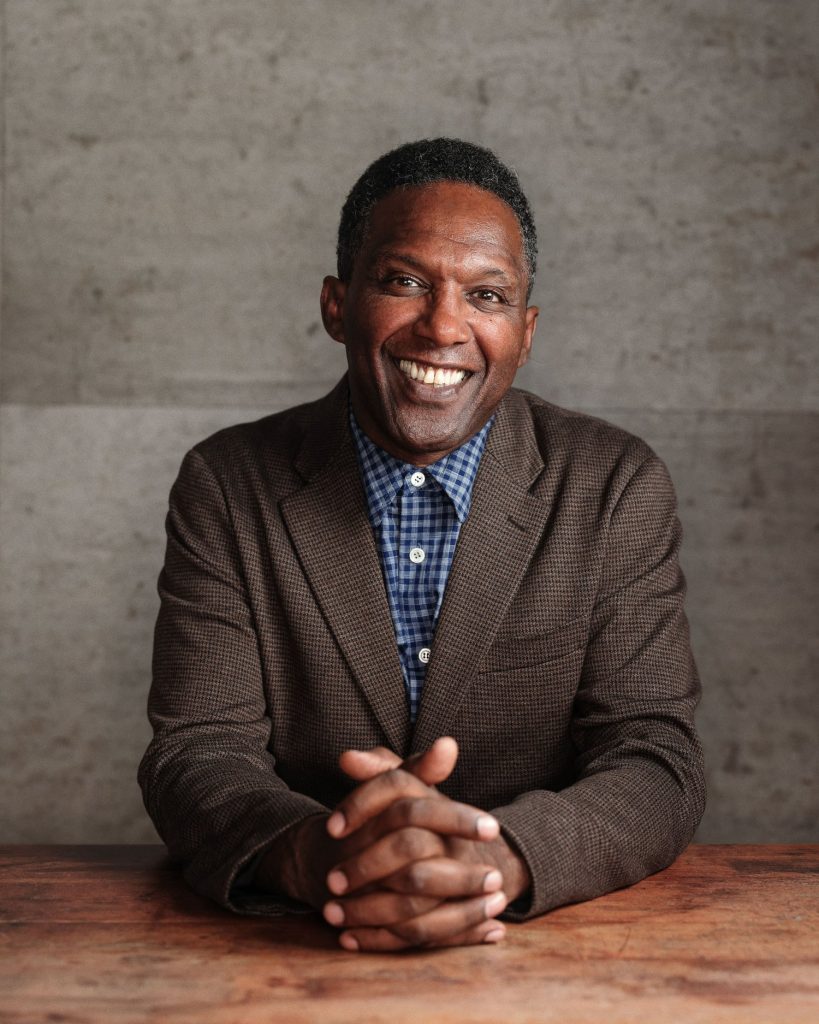
To try and pour light onto yourself?
Maybe to get in touch with the light inside myself. That sounds quite obscure, but it’s true. I do write for myself though. It’s a totally selfish task.
I always had a deadline for these morning poems to be done by noon, but I usually had one finished by 10 am. People might say these four line poems in Let The Light Pour In look pretty easy. Well, I would say “You get up every morning for 13 years and write one of them.” Because that’s what this book is, or any book. It’s the application of an idea, not just the idea. It’s the telling of the story, not just a story living in your head.
There’s a proverb I like about a Chinese Emporer who commissions a painting of his horse, but over three years, the artist never delivers. He turns up at the artist’s door with soldiers, ready to set an example and kill for the failure. Pleading for his life, the artist does a magnificent painting in ten minutes. Flabbergasted, the Emporer goes into his house and finds thousands and thousands of sketches and paintings of the same horse.
Its the high investment it takes to do something easily or quickly. Like the years of hard work it takes to become an overnight success.
Exactly.
What do you like about the poems that you chose for the book?
One of the poems is;
“I am not defined by darkness”
Confided the night
“Each dawn I am reminded,
I am defined by light.”
I like lots of things about that. I like all the sound of the ines, that are tucked into the poem. I like the fact it rhymes on two lines. I love the idea that darkness can be defined by light. Therefore, it’s kind of thankful for the light. It’s lovely. I love the idea of personalising the night. Everything just fits. It’s like a jigsaw puzzle in many ways; philosophically as well as literarily.
I like to have a thread through the four lines in themselves. But I also like to play as well. I have another one;
Batman: To the bat cave
Robin: Really? Now?
Batman: Thwack!
Robin: Ow!
I think the one defining factor for all of them, is that there’s light in them in some way, shape, or form. Whether the light is under duress, under pressure or showing off.
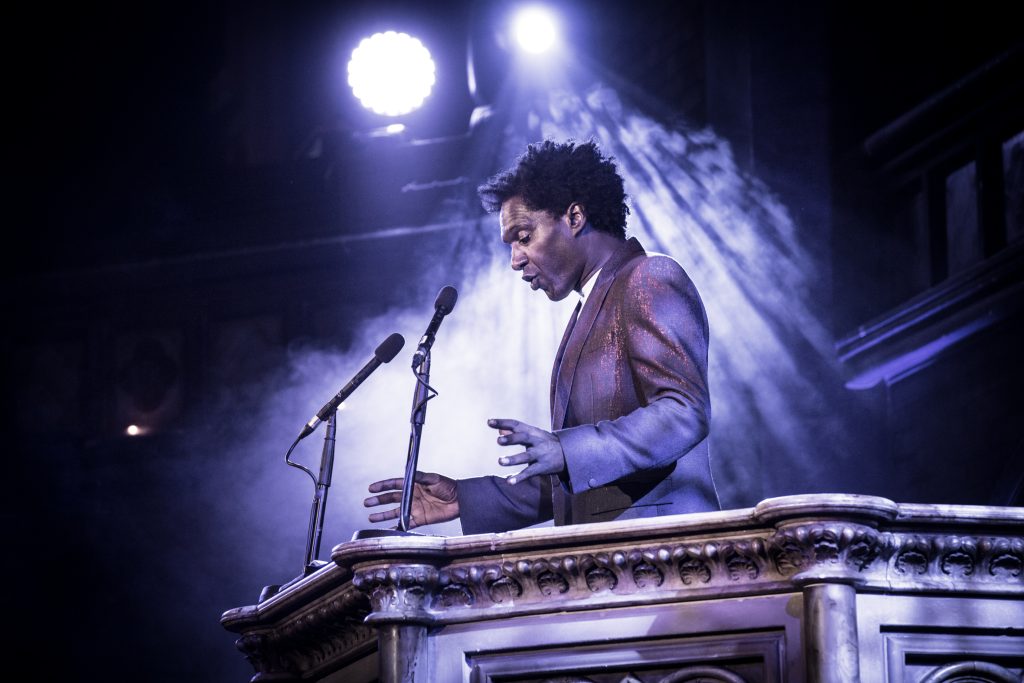
Is there something you hope a reader will take away with them from the work?
I can’t say what a reader will get. But I can tell you that every day or every couple of days, people write to me, whether on X or Facebook or in email, to tell me that they’ve read the poems while they’ve been under pressure in one way or another. They tell me that they’ve been lifted and inspired, that they have found them to be a balm when feeling stressed. I didn’t write them to be that. It wasn’t a book as I went along. There are thousands of these poems out there online. It was my publisher that said, “Let’s put them together in a book.”
There are no titles, no content list. There’s no form except for four lines on each page. And it became a Sunday Times bestseller. It’s still selling, and not because of some mad marketing machine. I mean, publishers never spent that much money on marketing poetry anywhere. They‘re always waiting for the artist or poet to write the big novel!
Do you think people, or society, might be more in need of a balm now than before?
We turn to poetry at times of stress, and we are presently in times of stress. I think most of us would say that whichever side of the political line we find ourselves. There’s so much toxicity in the world coming from everywhere. Poetry is like taking a holiday. Taking a break, but still being yourself and still being present in the world. It’s not escapism. We need it like a breath of fresh air.
I was invited to speak at Princeton by the head of the Faculty of Diversity and Inclusion in January of this year. That feels like a lifetime ago.
At the moment, the U.S. administration has a lot of ideas about what family looks like. From your perspective, and as someone that has spent a lifetime looking at the notion of family, do you have any thoughts?
They want more white babies, more American babies. I think that’s what that is. It’s playing to the religious right, so being against contraception. I think it might also have something to do with China; saying that China made a mistake by having a one-child policy. The more they tell people to have babies, when they have babies, they’ll be Trump babies, Trump voters. They’ll say “We had a baby on your watch.” Certain kinds of regimes always get involved with procreation. The manipulation of procreation. Ooh, that could be a rhyme. That’s good.
So with that need to crack on and prove yourself to yourself, are you already working on something new?
Absolutely! I’m writing the second part of my memoir. I’m reading the second pass of it now. I can’t tell you anything about it. Sometimes when you talk the story, the story never gets written. People often say they’re going to write a novel or a story or an article, as if it’s easy. It seems easy to have the dream. It seems easy to read a book. Therefore why should it be difficult to write? But it is. This book will be a sequel to My Name Is Why.
And are the four line poems still coming? Will we get an Aussie one?
I actually did one this morning, and I was pleased at having a go, as it’s not as regular as before. But yes, I think I will do one down under!
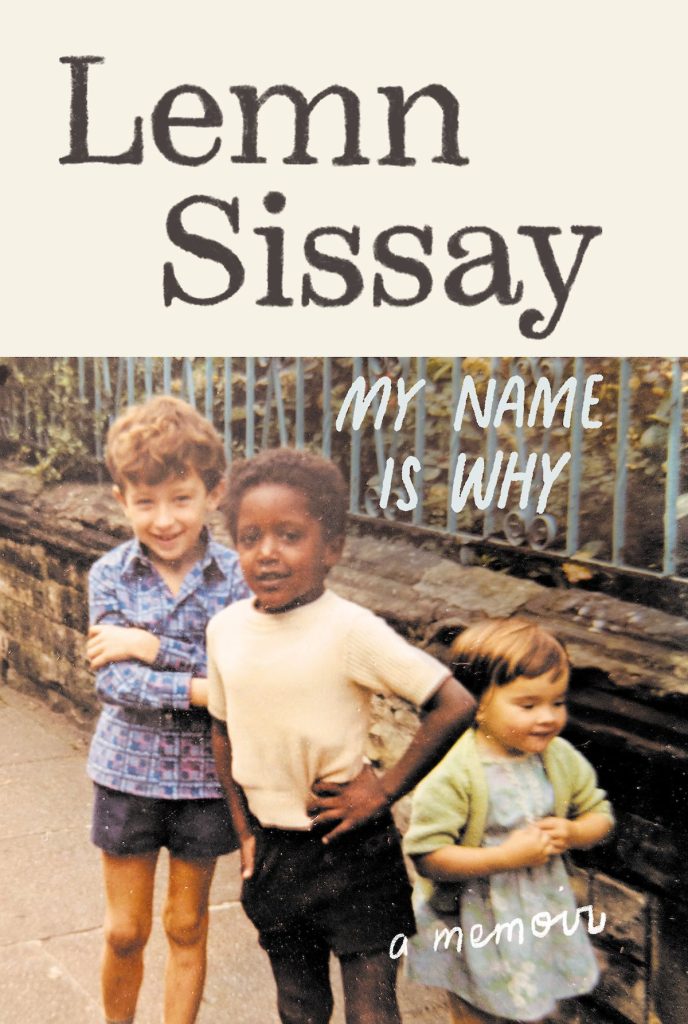
Sydney Writers’ Festival
19–27 May 2025.




